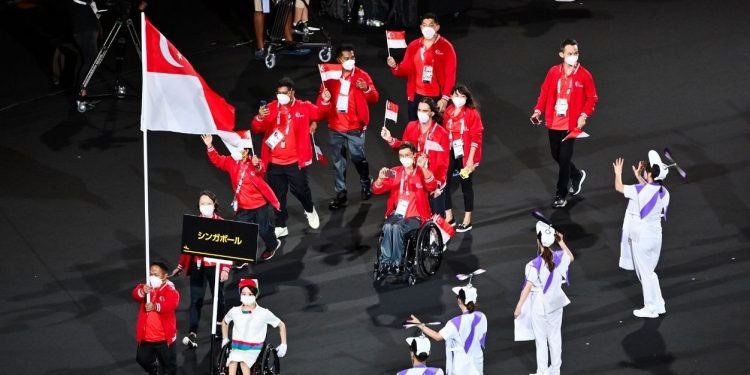In any sporting event, athletes are the ones to watch. As they astonish with their strength, finesse, and prowess, it is easy to overlook the various moving parts that work together to prepare an athlete to compete at the highest level. And there is a group of individuals who are by the athletes’ side throughout every training, and who will be beside them as they stand on the fields of play at the Tokyo 2020 Paralympic Games – coaches.
The factors a coach has to take into account when training their athletes for a sport are plentiful. They are responsible not just for the physical prowess of their charge but also their technique, mental focus, and timing.
Powerlifting coach Muhammad Abdul Razak bin Mansor, who coaches Singapore’s first paralympic powerlifter Nur Aini Yasli, explains: “We have to monitor fatigue levels, whether their joints are feeling healthy, their energy level, and of course, we have to keep them mentally in shape.”
“We have to get [the athletes] to peak at the right time,” he says.
This involves preparing the athletes mentally as well: “It can get mentally challenging, and you have to keep them on their toes. Let them know that they have the ability to make the lift.”
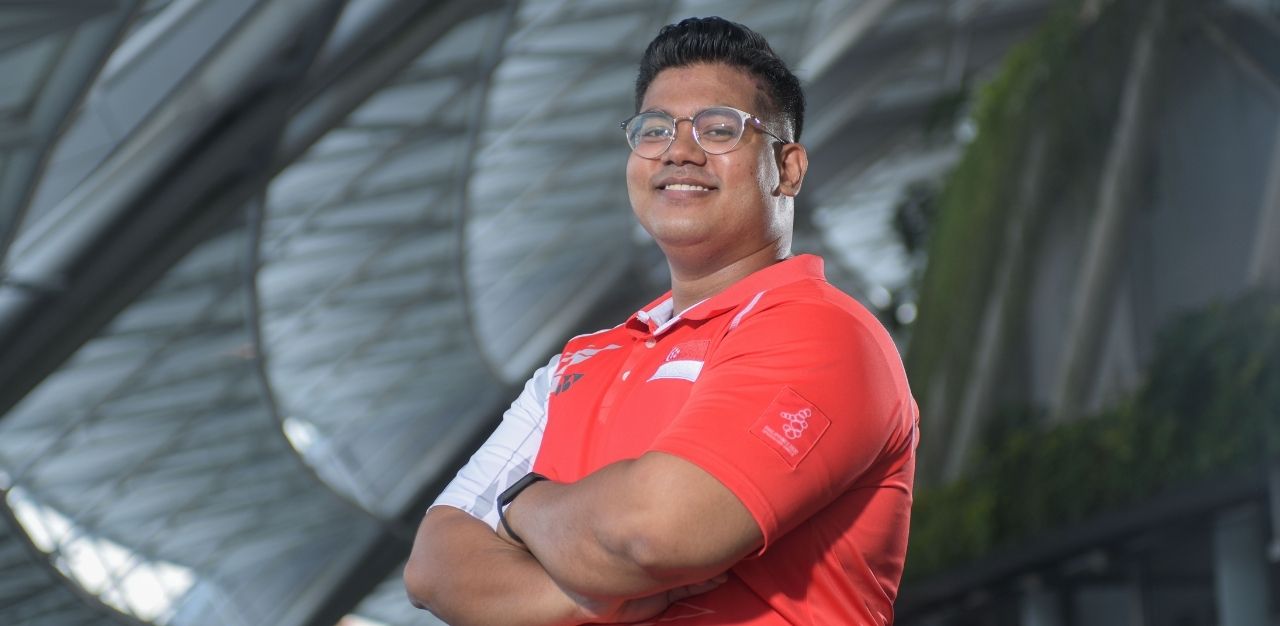
Additionally, powerlifting being a weight class sport means that Mr Razak works closely with a nutritionist to ensure Ms Aini is meeting her targeted weight class ahead of the Games: “We get them to monitor their weight, and make sure they are on track to [maintaining it].”
“When all these things are in place, we create an environment for the athlete to be a little bit more relaxed [when] coming into the competition,” he says. “When they are properly relaxed and adequately prepared, that’s when they perform.”
For archery coach Pang Qing Liang, time posed another challenge. The training cycle for the paralympics is typically four years, but Mr Pang only took over his charge’s [paralympic archer Nur Syahidah Alim] training in 2019.
@mustsharenews Did you know Paralympics means parallel Games to the Olympics? #paralympics #paralympics2020 #teamsingapore #tiktoksg #mustsharenews ♬ original sound – MustShareNews
As a result, his training plan had to take into account the short timeframe, and compromises on certain aspects to ensure she was ready for the Paralympic Games that were happening the next year (before the Games were postponed due to the Covid-19 pandemic).
“For me, [the focus was thus] on the mental aspect. Because [Ms Syahidah] had been shooting for so long, in terms of shooting habits, she is quite consistent in how she manages herself in competition,” he explains.
“I always [get] her to focus on the process, and on [factors] she can control,” he concludes.
A journey in the making
Mr Pang’s journey to the Paralympics started when he took over Ms Syahidah’s training in 2019: “I [didn’t] dive straight into what to change for her. Gaining the respect and acknowledgement [from her] was very important.”
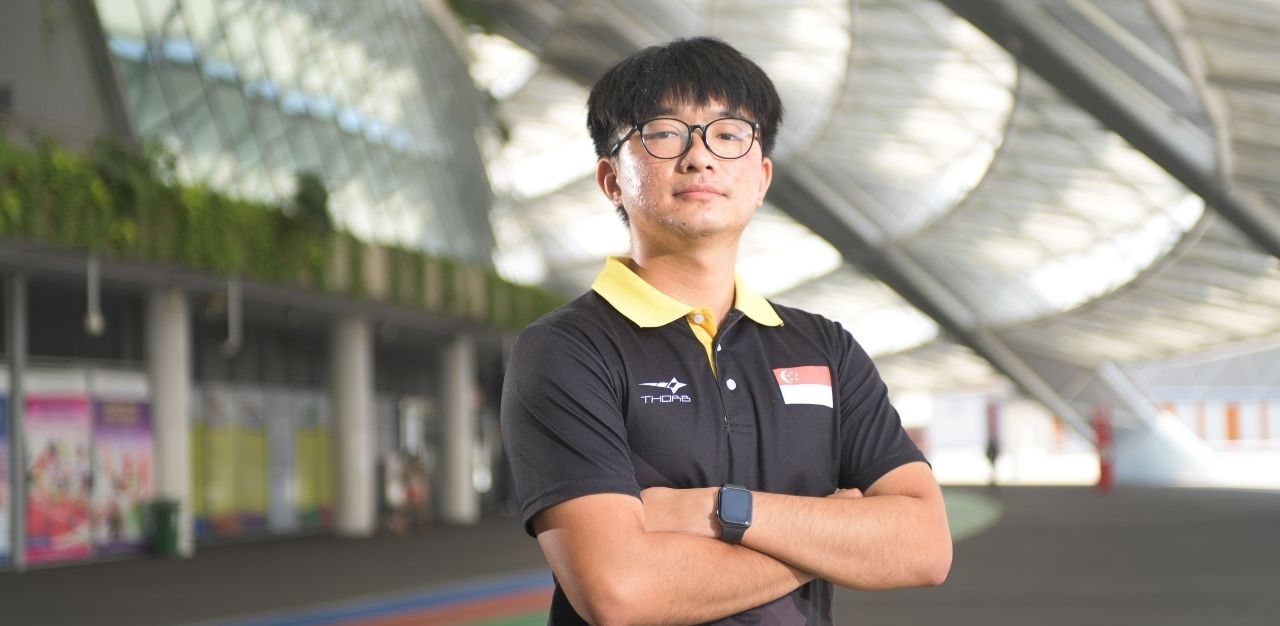
He elaborates: “A coach may just be a name. Not all athletes will listen to you. You have to show some skills and do what you need to [for athletes] to eventually believe in you.”
Over time, Mr Pang and Ms Syahidah developed a strong rapport. Their coach-athlete partnership was put to the test not long after Mr Pang took over the training regime for Ms Syahidah, during the 2019 World Archery Para Championships held in Hertogenbosch, Netherlands.
Ms Syahidah put up a stellar showing, and clinched the world championship title. Recalls Mr Pang: “It was quite a happy moment for me [as it] means that what I was doing is on the right track.”
Mr Razak’s journey with Ms Aini reads a little differently. He shares: “When I took over [coaching], we discussed that… she had a very slim chance of qualifying for the Paralympic Games.”
What little hope they had was dashed when Ms Aini broke her ankle in late 2019, and was out of the game for approximately six to seven months.
“[At the time], we thought the chance slipped out of our hands already,” Mr Razak recalls. “But fortunately, the pandemic bought us some time, so we got to prepare for the [qualifying requirements needed to make the Paralympic Games].”
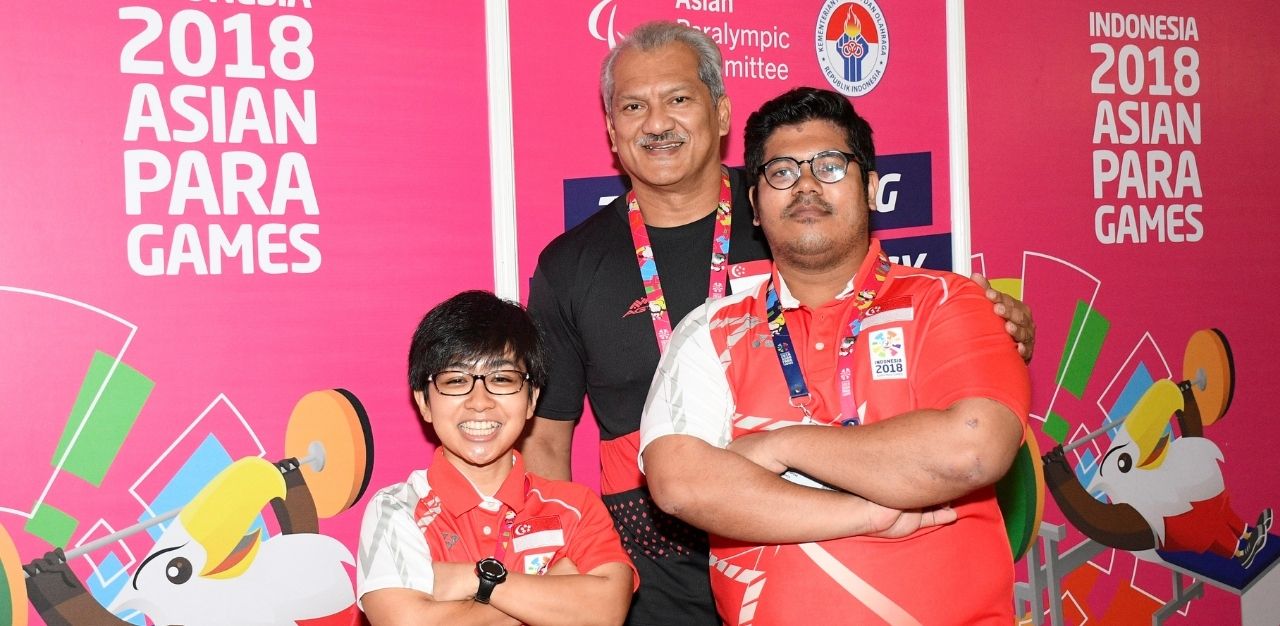
He clarifies: “It still wasn’t in the cards whether we could qualify or not, but I had this gut feeling that we needed to try.”
Entering the Para Powerlifting World Cup in Dubai in June 2020, Mr Razak was hopeful that Ms Aini would make it to the top eight. But much to their surprise and delight, Ms Aini would surpass all expectations, and win the bronze medal, earning her a place at the Tokyo 2020 Paralympic Games.
It is a dream come true for Mr Razak: “Since my days of playing rugby, and powerlifting as a young guy, one of the things that I really wanted to do is to represent the country in something.
“I’m stoked to be given the opportunity to be at this level with these great athletes [and] I feel very humbled to be in this position right now and to be able to qualify for and coach the highest level of sport in the Paralympics.”
The unsung heroes on game day
Beyond supporting and training the athletes in the lead-up to major games and competitions, coaches also play a vital role on game day. As part of Singapore’s contingent that travels to Tokyo alongside the athletes, they will remain by the athletes’ sides throughout the games, ensuring that things go smoothly, and that the athletes are in their best form on game day.
Mr Pang shares: “[On the day of the competition], I wake up earlier to make sure that the day’s itinerary wouldn’t have any problems to remove administrative stress from the athlete.
“[This means] getting her there at the right time, and getting her comfortable. I need to find out what the timing is to [compete], when we can start practicing, what time the bus comes, and all that.”
Essentially, the coaches double up as team managers in Tokyo, ensuring that everything goes smoothly, so that athletes can focus solely on their sport.
On competition grounds, he says: “As a coach, even if you are not calm, you must act calm [to] give assurance to the athlete participating in the games.”
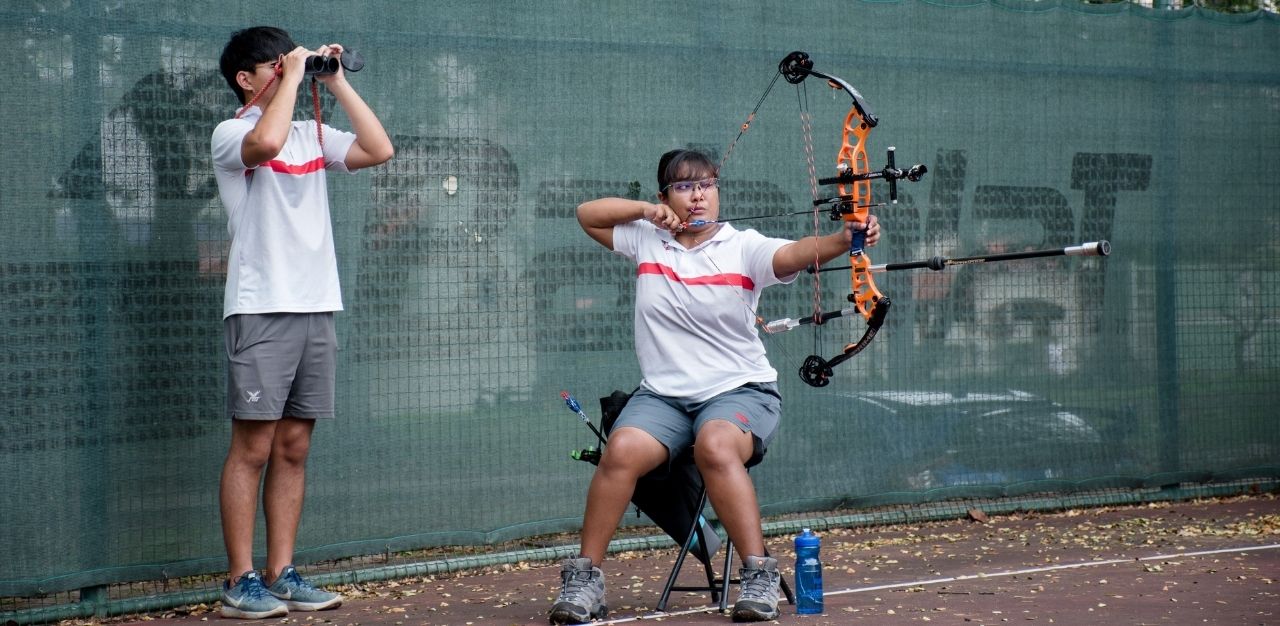
He also steps in to ensure that his charge continues to maintain good habits during the games instead of succumbing to nerves: “You need to pull them back on track, and summon them back to what they need to do.”
Mr Razak chimes in: “I have to make sure that [Aini] calms her nerves down and is adequately prepared. [For instance, she has to get] in gear on time, and get warmed up on time.”
“We have a very limited time for warm-up, and it is crucial,” he adds. “If we rush the warm-up, or if we have too long a delay between [it] and the actual lift, it can compromise her performance on the platform. It’s all about getting the timing right on competition day.”
Being a powerlifting coach also comes with the added responsibility of being the decision-maker for the weights Ms Aini will be lifting for her attempts.
“I have to be sharp… to monitor the screens [to see] which athletes are lifting what, and [determine] how we climb positions,” he says.
Going into the Games, both coaches have envisioned the goals and expectations set out for their athletes.
Says Mr Pang: “The Paralympic Games are just part of a milestone to become an even better archer in the world.”
“In every competition we go to, we aim to be on the podium, but [more importantly], we still focus on the process. [This goal] is more of her doing what she needs to do… For example, [staying focused] despite wind and weather elements, people talking around you, or photographers spamming the shutter.”
Meanwhile, Mr Razak states: “We are going to put it all on the table, but the most important thing that I want [Ms Aini] to demonstrate is her technical abilities.”
“The [goal] is just [for her] to perform to her best. It’s just three lifts, and it’s all out on the table. So if we can get all three, it’s a very good day for me. And if we can get a personal best, then that’s a fantastic bonus,” he adds.
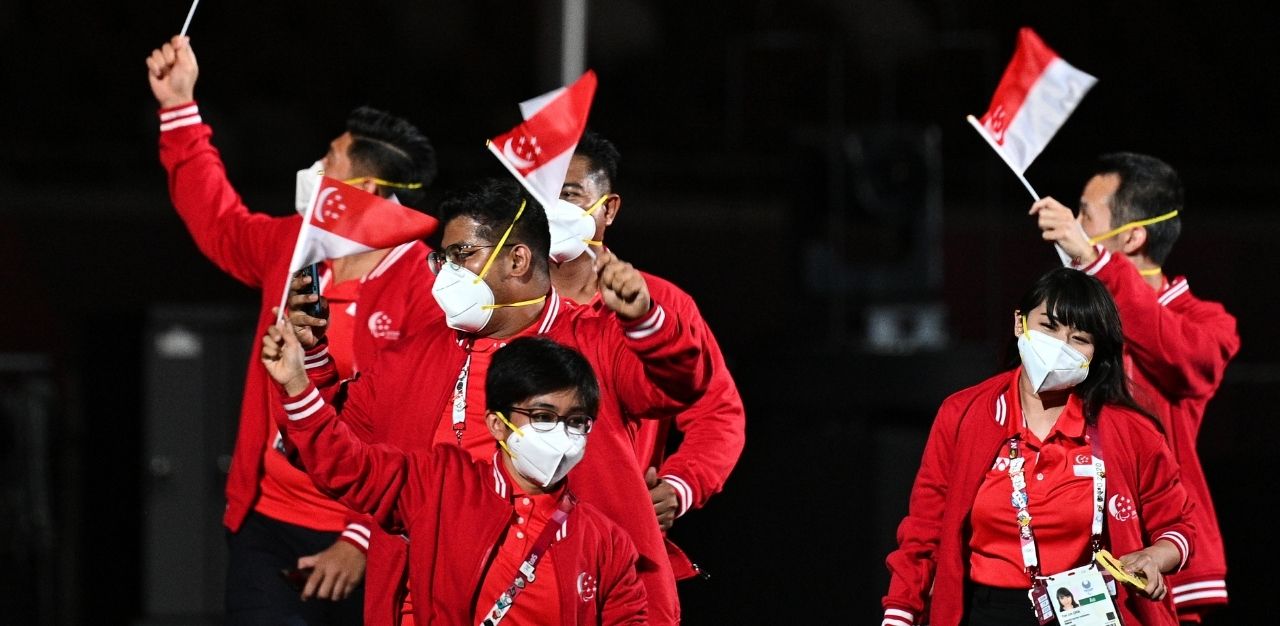
As the coaches and athletes alike gear up for their respective events, Mr Pang hopes that audiences will tune in to watch the games and support the athletes.
“When [Paralympians] compete, they are definitely more focused than any one of us. Because of what they went through, they don’t give up so easily, because it’s already out of their comfort zone.”
“I urge more Singaporeans to start watching [paralympic sports] and get inspired by them as well,” he says.
Join the conversations on TheHomeGround Asia’s Facebook and Instagram, and get the latest updates via Telegram.



